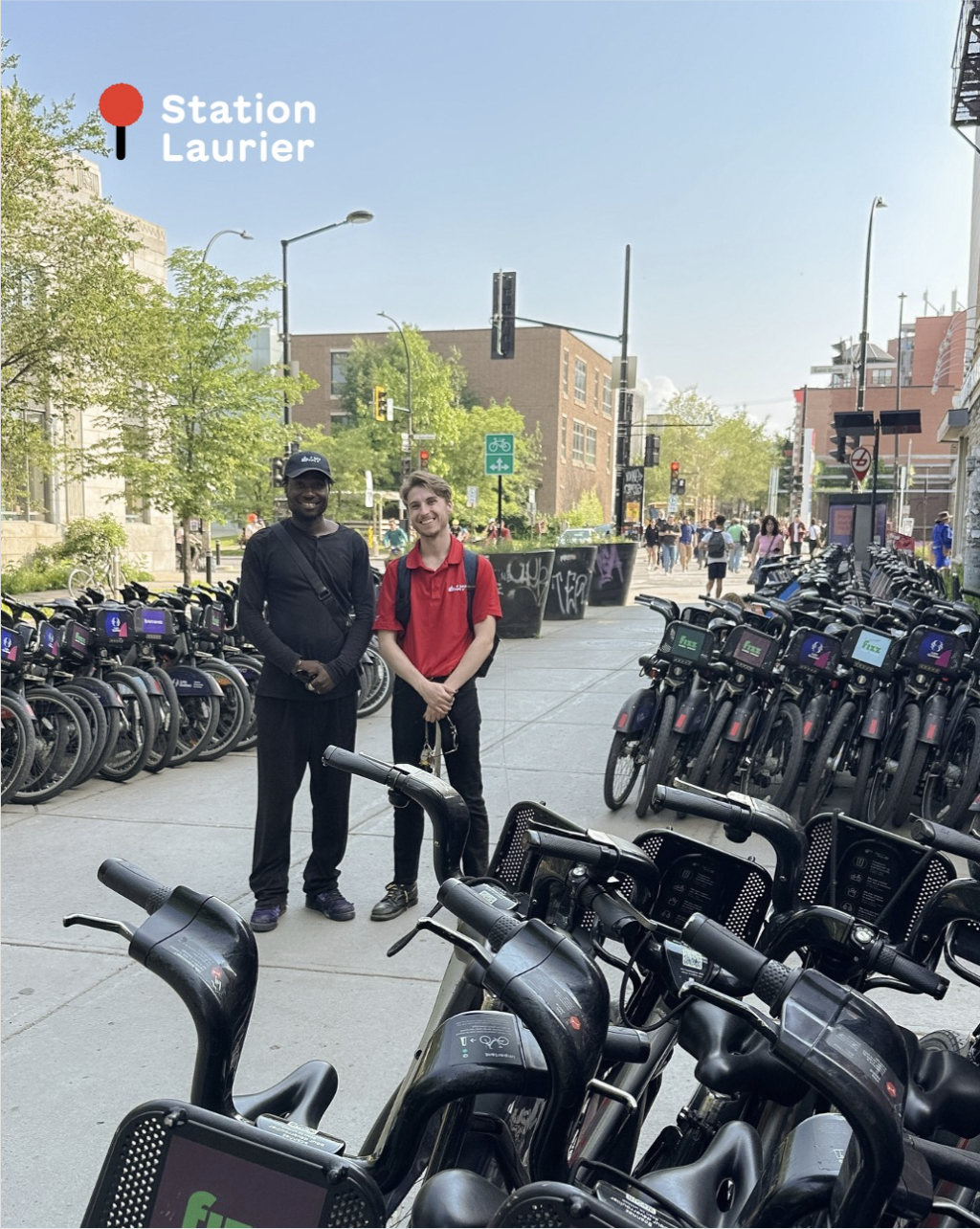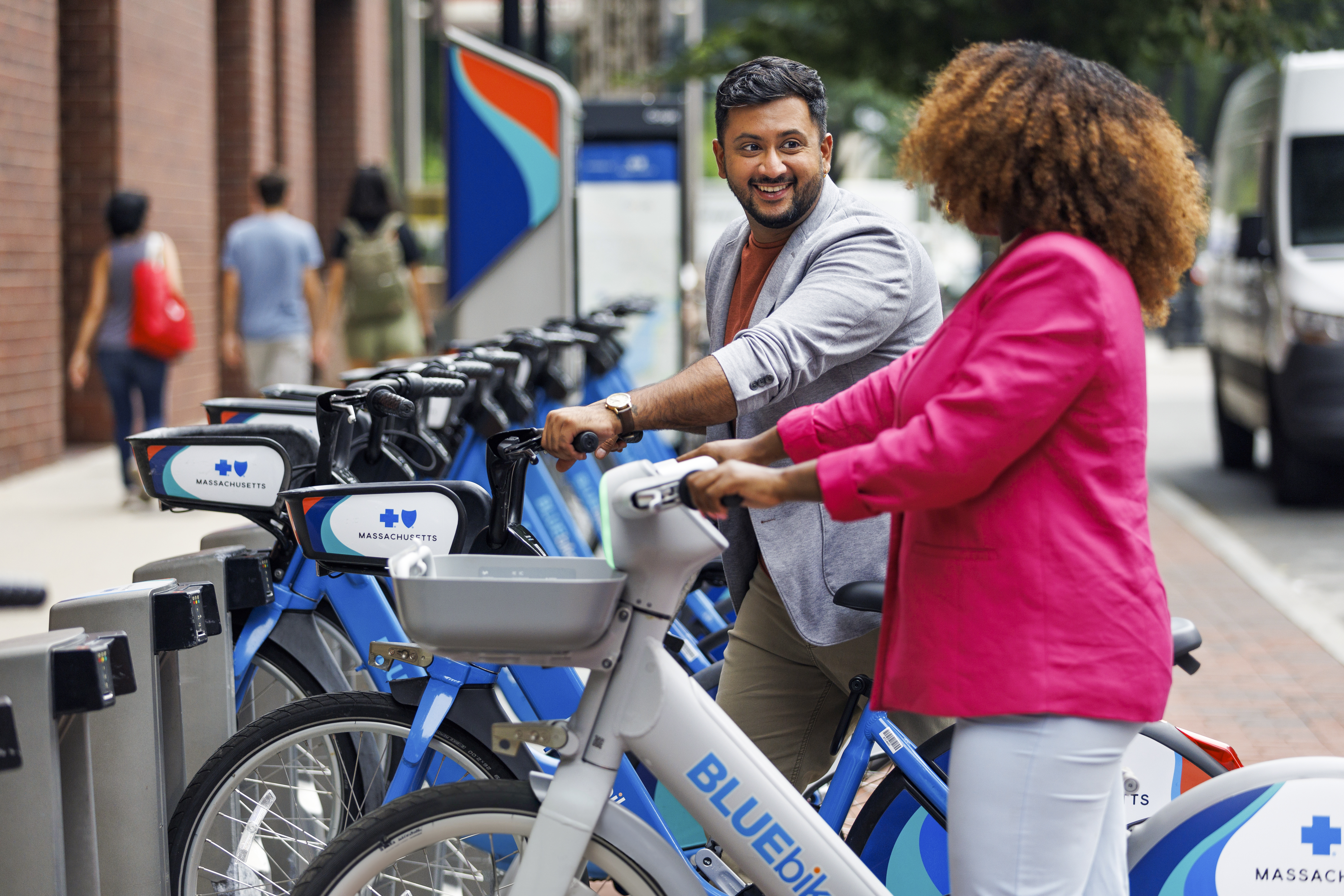
A behind-the-scenes look at Citi Bike operations
February 03, 2026 — Lyft Urban Solutions insightsLyft Urban Solutions insights
In an era where urban transportation faces increasing pressures—from aging infrastructure to climate disruptions to labor disputes—cities need resilient mobility networks that can adapt when traditional systems are disrupted. Bikeshare has emerged as a critical component of urban transportation resilience, providing essential backup capacity when residents need it most.
Recent data from the 2025 Lyft Multimodal Report reveals the scope of bikeshare's resilience role: 37% of riders in Lyft’s U.S. operated-markets have used shared micromobility when public transit is not available. But this national average tells only part of the story. In major metropolitan areas, the numbers are even more striking: 42% of Bay Area riders, 48% in Portland, 50% in Boston, 48% in Washington DC, 56% in New York City, and 45% in Chicago have turned to shared micromobility when transit isn't available.
The riders surveyed in this report are not only casual users seeking convenience, but they're also transit-dependent residents seeking mobility options when their primary transportation system is not available. Over 91% of shared micromobility riders in major U.S. systems are public transit riders, and 81% use shared micromobility to connect to/from transit, helping bridge the first/last mile gap. Among riders surveyed, 51% do not own a personal vehicle. These riders rely on a multimodal system, one that does not incorporate a personal automobile, to support their travel patterns.
A few programs that leverage Lyft Urban Solution’s bikeshare technology have shared this experience:
The most recent and large-scale demonstration of bikeshare's resilience came during Montreal's transit strike in June 2025. As a strike from maintenance workers of the city’s transit agency caused major bus and metro service disruption for nine days, the Bixi bikeshare program transformed overnight into one of the city's primary transportation lifelines.
The ridership was unprecedented: BIXI riders took more than 80,000 trips daily during seven of the strike days, with June 11th hitting 98,500 trips—nearly 20,000 trips more than the previously held daily record. In total, BIXI’s team shared that residents made nearly 700,000 trips during the strike, covering 2.2 million kilometers.
BIXI's operations team ensured a smooth experience for all users, even during peak demand. Their "bike valets" at docking stations were crucial in guaranteeing riders could easily find a bike or an open dock. This commitment to user satisfaction is reflected in survey data (shared in the same article), which indicates that a remarkable 86% of first-time users are encouraged to continue using BIXI long-term. This bodes well for the sustained growth and broader adoption of BIXI as a clean, multimodal transportation solution, especially among those who discovered bikeshare during the recent strike.

Montreal is not the only city that’s had to maneuver through transit disruptions. When metro-Boston shut down the entire Orange Line for 30 days in 2022 for safety repairs, Bluebikes stepped into the breach with remarkable results. Daily ridership more than doubled from 13,000 to 26,000 trips by the end of the shutdown. From the year prior, the Orange Line shutdown led to a 54% increase in trips in the month of August per the 2023 Lyft Multimodal Report.
The City of Boston's response was equally important: the city provided free monthly passes and free Bluebikes unlock codes for Orange Line commuters during the shutdown, removing financial barriers and recognizing bikeshare as essential infrastructure rather than just convenience.

Similar to Boston but a year earlier, Washington D.C.'s Capital Bikeshare system demonstrated proactive resilience during WMATA's reduced service capacity that was challenging transit riders with overcrowding and long wait times. During the fall 2021 Metrorail service disruptions, Capital Bikeshare offered free 30-day memberships to affected commuters, demonstrating bikeshare's power as a key parallel transit option.
The response was remarkable: 89% of the riders who signed up for the membership were first-time Capital Bikeshare members, showing how transit disruptions can introduce new populations to cycling and bikeshare as a reliable form of daily transportation (2022 Lyft Multimodal Report).
In 2021, ebikes were a smaller subset of the Capital Bikeshare program; however, in 2024 with a growing ebike fleet, the system has seen skyrocketing 143% YoY growth in ebike ridership. One can imagine how much more powerful the ridership stickiness would be for new riders if they had experienced their first trip on an ebike.

Bikeshare networks demonstrate remarkable operational flexibility when cities face transportation emergencies. These systems can rapidly expand their capacity by deploying modular stations, increasing staffing with "valets" at high-ridership areas to manage overcrowding, and mobilizing additional fleet for strategic bike redistribution across the network.
The distributed nature of bikeshare networks improves transportation options within a city. With hundreds of stations spread throughout a city, the overall system allows for service access, even in areas that may be farther from fixed-route transit services, and can support first-last mile access. Bikeshare networks extend into residential neighborhoods and commercial districts throughout cities, providing access to these essential services. This broad reach offers multiple routing options that allow residents to maintain connectivity across the urban landscape, accessing employment, services, healthcare and more regardless of which transportation corridors may be affected. The station based model also allows for predictability for riders knowing where to start and/or end their trips and having consistency in availability of devices.
As cities face increasing pressures on transportation infrastructure and service disruptions, complementary networks become increasingly critical. Bikeshare has proven it serves as more than recreational infrastructure. During transit crises, these systems become essential lifelines that keep cities moving and communities connected.
Bikeshare provides social access to mobility that scales with demand and remains available when residents need it most. When transit is disrupted, bikeshare keeps rolling.